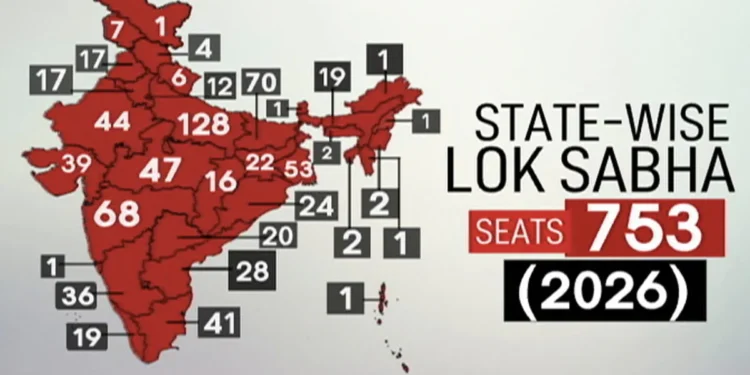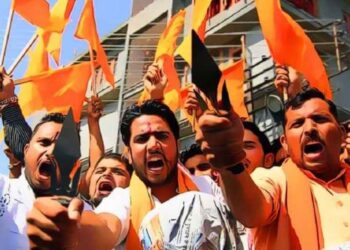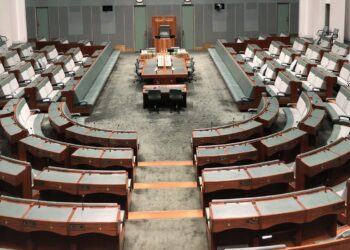The Roots of the Dispute: A Historical Freeze and Rising Tensions
A contentious debate over redrawing India’s electoral constituencies has reignited long-simmering tensions between the country’s northern and southern states. At the heart of the conflict is delimitation—the constitutional process of reallocating parliamentary seats based on population changes. India last undertook this exercise in 1971, freezing seat numbers to avoid penalising states that successfully reduced birth rates. Over 50 years later, this freeze has created stark disparities: MPs in populous northern states like Uttar Pradesh (UP) now represent three million citizens each, compared to 1.75 million in Kerala. Southern leaders argue that redrawing seats using current population data would punish their states for achieving lower fertility rates and contributing disproportionately to national revenue.
The freeze has left India’s Lok Sabha with 543 seats, unchanged since the 1970s, despite the population tripling. Tamil Nadu Chief Minister MK Stalin warns that delimitation in 2026—tied to a yet-to-be-conducted census—could cost southern states up to 30 seats, shifting political power northward. “Delimitation is a Damocles’ sword hanging over southern India,” he declared, mobilising protests against what many perceive as a threat to regional influence.
Malapportionment and the Erosion of ‘One Person, One Vote’
India’s electoral map now suffers from “severe malapportionment,” as economist Shruti Rajagopalan terms it. Northern states like Bihar and UP are underrepresented, with 12 and nine fewer seats than their population share warrants. Meanwhile, southern states like Tamil Nadu and Kerala hold nine and six extra seats, respectively. This imbalance violates the constitutional ideal of equal representation: a voter in Kerala holds 1.7 times more influence than one in UP.
The disparity stems from diverging demographic trajectories. Southern states, with health and education metrics rivaling wealthy nations, have fertility rates below replacement level (1.7-1.8), while Bihar and UP hover around 2.9. Southern leaders argue that rewarding higher population growth with more seats undermines their investments in human development. “Why should we be penalised for empowering women and curbing population growth?” asks Kerala Finance Minister KN Balagopal.
Proposed Solutions: Expanding Parliament or Restructuring Federalism
Experts propose multiple fixes, each requiring rare bipartisan consensus. The most straightforward—yet logistically daunting—solution is expanding the Lok Sabha. Returning to the original constitutional ratio of one MP per 750,000 citizens would require 1,872 seats, far exceeding the new parliament’s 880-seat capacity. A more feasible alternative, per Rajagopalan, is raising seats to 848 to ensure no state loses its current count.
Others advocate fiscal decentralisation. States currently receive less than 40% of national tax revenue but shoulder 60% of public spending. Granting states greater revenue autonomy and tying federal funds to development needs, rather than population, could ease tensions. Additionally, reforming the Rajya Sabha (upper house) to function like the US Senate—with fixed seats per state—could amplify regional voices. “A reformed upper house could soften resistance to Lok Sabha seat reallocation,” says Milan Vaishnav of the Carnegie Endowment.
Splitting large states like UP, which holds 15% of Lok Sabha seats, is another proposal. Smaller states could ensure fairer representation and governance. However, such moves face political hurdles, as seen in past state bifurcations.

Political Ramifications: Polarisation and Federal Deadlock
The BJP-led central government faces mounting pressure to clarify its stance. While Home Minister Amit Shah claims southern states “won’t lose a single seat,” his assurances lack detail. Meanwhile, federal cuts to southern education funds and labelling Tamil Nadu’s policies “undemocratic” have deepened distrust.
Regional parties in the south, fearing marginalisation, have allied with Punjab to demand a 30-year delimitation freeze. Conversely, northern leaders view seat reallocation as overdue justice. Political scientist Suhas Palshikar warns of a dangerous cycle: “The north-south prism could trigger counter-mobilisation in the north, making negotiation impossible.”
Balancing Democracy and Demography: The Path Ahead
The standoff underscores a foundational challenge: reconciling democratic principles with demographic realities. India’s federal structure, designed to balance unity and diversity, is strained by competing visions of equity. Southern states equate fairness with rewarding development; northern states prioritise population-based representation.
Expanding the Lok Sabha while preserving southern seats offers a middle path. As Rajagopalan notes, this would honour both “one person, one vote” and regional contributions. However, it demands political courage to overhaul a system frozen in time.
The dispute also highlights the need for nuanced fiscal federalism. Southern states, contributing 35% of GST revenue despite housing 20% of the population, seek compensation for their economic role. A revised revenue-sharing model, tied to performance metrics like education and healthcare, could align fiscal policy with developmental goals.
With the 2026 delimitation deadline looming, India stands at a crossroads. The choices made today will shape not only electoral maps but the very fabric of its democracy—testing whether a nation of staggering diversity can uphold both equity and unity in an era of deepening divides.










